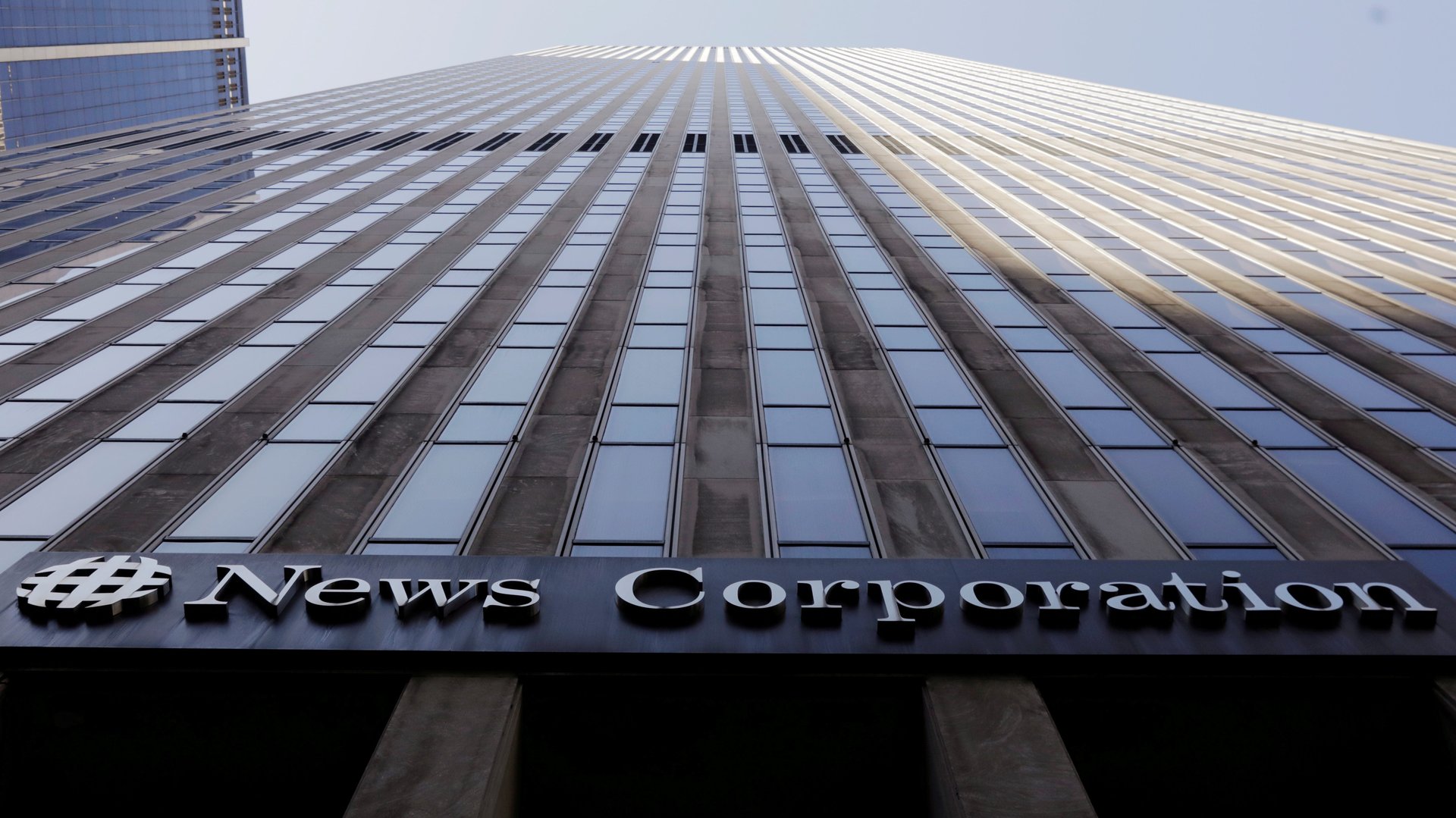Only Facebook and Google could have made News Corp look like an underdog
At one level, this week’s media showdown in Australia pitted the government, batting for journalism, against the gatekeepers of the internet age. At another, it was a battle between old and new corporate giants.


At one level, this week’s media showdown in Australia pitted the government, batting for journalism, against the gatekeepers of the internet age. At another, it was a battle between old and new corporate giants.
In one corner were Google and Facebook, the social media giants who style themselves as the standard bearers of a free and open internet, and whose platforms benefit from displaying and sharing links to news sites.
In the other corner was News Corp, a major media empire run by the titan Rupert Murdoch, with the backing of Canberra’s political establishment. News publishers want compensation for their work that Google and Facebook share on their platforms; the government’s proposed media bargaining law is supposed to help them get that.
News Corp’s might is hardly negligible—measures like revenue and average readership per issue show it has a more than 50% share of the print news market in Australia, and a 27% share of the online news audience. Its sway reaches far beyond Australia of course, with its ownership of the Wall Street Journal and British newspapers, while a sister Murdoch-controlled concern owns Fox News (these ventures were all part of the original News Corporation until it split into two companies in 2013). Yet improbably, a news empire long accused of spreading disinformation and stoking toxic politics through its “Foxification” of the news managed to cast itself as an underdog in need of government protection from tech giants distributing its work.
As far back as 2009, Robert Thomson, then managing editor of the Journal and now News Corp’s chief executive, described the platforms as parasites on news organizations—the “tapeworms of the internet.” As Australia moved forward with the law, Google essentially gave News Corp what it’s been asking for all these years, a payment deal for its news. (According the Sydney Morning Herald, the arbitration model that will be invoked if platforms and publishers can’t reach one on their own will be based on one proposed by News Corp.)
Taking the opposite tack, Facebook shot itself in the foot with its ham-fisted blackout of news links, earning sharp rebukes for cutting access to vital information during pandemic, including from government-run pages.
It’s true that Google and Facebook’s domination of online ads has hurt news revenues for large and small outlets, sending news organizations in the direction of subscription models over fickle ads. The platforms’ rise has come at the same time as hundreds if not thousands of small news outlets have perished.
But though Google inked deals to pay News Corp. and other publishers for the right to link to and display small snippets of their articles, critics say the arrangement ultimately does little to help build a more diverse and resilient news ecosystem. Rather, the critics contend that the deals will only line the pockets of people like Murdoch, and continue to leave smaller local outlets in the lurch.
Some (including the inventor of the internet) have pointed out the law works essentially by making linking out—the oxygen of the internet—chargeable if it happens on a platform with a certain level of revenues. Nor does it distinguish between sharing done by users or by platforms or by publishers.
Yet many world leaders—perhaps fed up of being out-maneuvered in different ways by tech giants—have expressed support for what Australia is doing, according to comments made by prime minister Scott Morrison on Friday. Canada, criticizing Facebook’s “unfriending” of the country, said yesterday it will soon unveil similar news content provisions.
At a time when News Corp has faced public backlash for its coverage—former Australian prime minister Kevin Rudd recently called it a “cancer on democracy,” a Murdoch scion distanced himself from the family empire over its climate coverage, and a record half a million Australians signed a petition demanding an official inquiry into its operations—Murdoch’s media empire has managed to make itself seem less threatening than the much-maligned Facebook.
Jeff Jarvis, a professor of journalism at CUNY’s Craig Newmark Graduate School of Journalism, summed up his disappointment: “A bad day for news. A bad day for the net.”
Correction: The story earlier incorrectly stated that News Corp owns Fox News. Fox News is owned by a company called Fox Corporation.